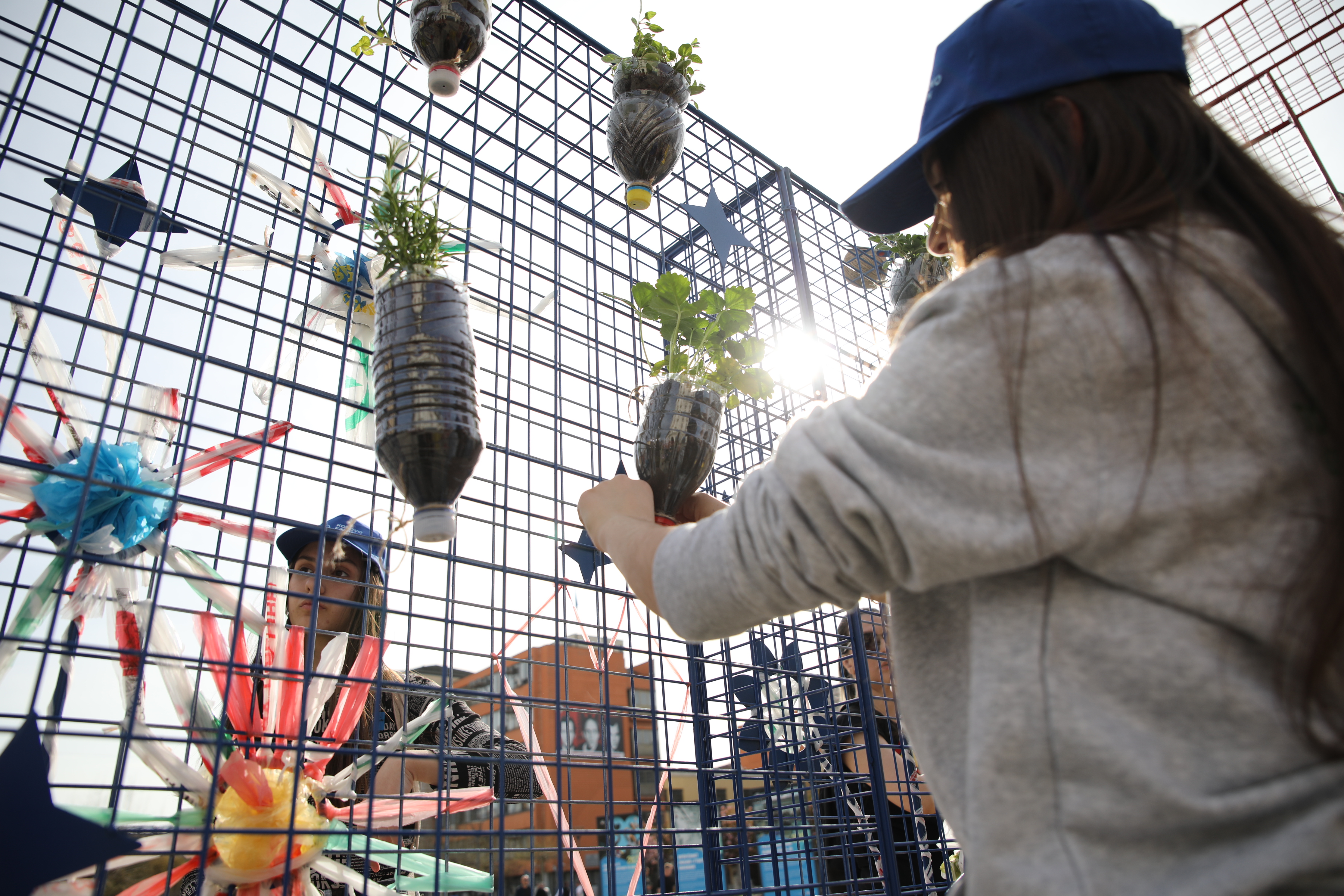Microplastics on Human Health: How much do they harm us?
June 5, 2023

In recent years, a silent menace has emerged, threatening the environment and human health. Microplastics, tiny particles of plastic less than 5 millimeters in size, have infiltrated our oceans, soil, and even the air we breathe. With their omnipresence, microplastics have become a matter of growing concern for the environment and human health.
Recent evidence indicates that humans constantly inhale and ingest microplastic through contaminated seafood, including fish and shellfish, Additionally, microplastics have been found in tap water, bottled water, and even commonly consumed beverages, such as beer and salt. In fact, a new study estimates that the average adult consumes approximately 2,000 microplastics per year through salt.
Different chemicals can leach from our plastic water bottles, knives and dermatologic products to enter our bodies. These compounds are linked to serious health issues such as endocrine disruption, weight gain, insulin resistance, decreased reproductive health, and cancer.
From decreasingly smaller plastic pieces being found, what is the effect of microplastics on human health? What does this mean for our health- it is still unknown and a mystery.
Based on WHO analysis on the current research related to microplastics, there is currently limited evidence to suggest microplastics are causing significant adverse health impacts. There are major knowledge gaps in scientific understanding of the impact of microplastics and the weight of the current evidence is low to conclude the casualty of adverse effects. Further and more holistic research is needed to obtain a more accurate assessment of exposure to microplastics and their potential impacts on human health.
As there is still much to be understood regarding the effect of microplastics on human health, this blog only highlights the growing concern of the major implications of microplastics and what we as individuals and society can do. This should include better management of plastics throughout their product life-cycle and reducing the use of plastics, when possible, to move towards a more sustainable plastics economy.
There is an overwhelming consensus among all stakeholders that plastics do not belong in the environment, and measures should be taken to mitigate exposure. UNDP Kosovo, has recently supported Ministry of Environment, Spatial Planning and Infrastructure(MESPI) into developing and launching the Circular Economy Roadmap – a great guide on how to smoothly transit to a more resilient environment and sustainable economy for a range of stakeholders in the public and private sectors.
In addition to supporting institutions with policies and interventions into advancing the green agenda,UNDP works a lot in raising awareness among the general public about environmental challenges.
This year, UNDP jointly with key institutions such as MESPI, Office of the President and development partners, has marked “Kosovo Earth Days” – a week-long campaign aiming to increase environmental activism by directly engaging and bringing together diverse people and groups to address environmental challenges such as plastic pollution and sustainable food systems.
As part of these efforts, UNDP implemented an activity called "Building Minds, Building Playgrounds: Teaching Kids Plastic Sorting and Reuse through Play." This initiative involved creating an incomplete playground structure where children used single-use plastic units to complete the structure through interactive and playful learning. The aim was to educate youngsters about plastic pollution and inspire them to contribute to environmental protection by finding new cycles for waste.
It is essential for individuals, organizations, and governments to work together to manage plastic waste, reduce plastic usage, and transition to a more sustainable and resilient environment. Everyone has a role to play in finding solutions to address the challenges posed by microplastics and protecting our health and the planet.
Blog by: Zana Shabani Isenaj - Project Coordinator, Healthier Kosovo 2

 Locations
Locations

